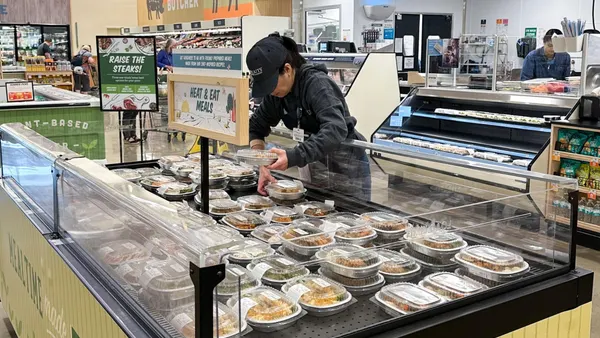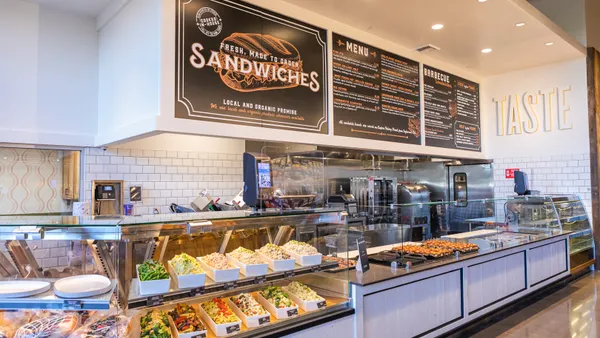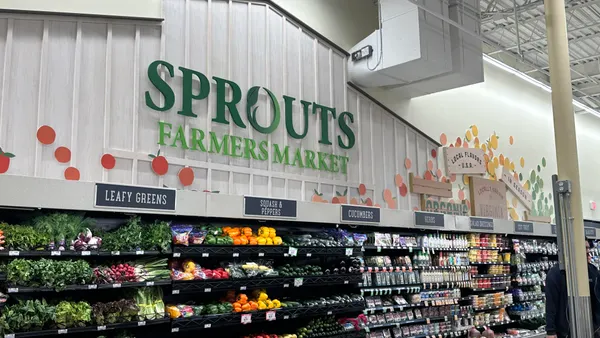Dive Brief:
- The novel coronavirus pandemic has motivated more shoppers to prepare meals in advance, with 75% either planning dinner a few days in advance (46%) or up to a week in advance (29%), according to a survey from the latest "Power of Foodservice at Retail" study published by the Food Industry Association (FMI).
- A majority of shoppers said that they would be more likely to order foodservice items if they had the option to do so in advance (70%) and receive them via curbside pickup (68%) or a drive-thru system (66%), saying additional store trips and concerns of entering stores are disincentives to buying foodservice items.
- COVID-19 hit retail foodservice particularly hard, cutting sales 17% between March through July and forcing grocers across the country to close or scale back offerings. The retail foodservice space continues to face issues with awareness, as only 16% of survey respondents said they considered the option after deciding not to cook.
Dive Insight:
As the novel coronavirus pandemic upends countless patterns in consumer behavior, meal-prepping is evidently on an upward trend. As shoppers took fewer, bigger grocery trips and spent less on dining out and retail foodservice, the number of home-prepared meals rose to an average of five per week.
And as the pandemic drags on, the FMI report adds to research asserting that meal planning fatigue and frequent cooking are starting to settle in among shoppers. Sales and marketing agency Acosta found in a study that 25% of people eating at home are tired of frequent cooking. The FMI report, which was prepared by market research firm 210 Analytics, was based on a survey of 1,500 U.S. shoppers and informed by point-of-sale and panel data from Nielsen.
Of those surveyed in September, 47% reported difficulty in thinking of new meal ideas, while 53% said not being in the mood to cook was a particular challenge. This meal prep fatigue offers an opportunity for growth in retail foodservice for providers who can successfully navigate and adapt to consumers’ wariness about public safety amid the ongoing public health crisis.
Consumers’ reluctance to take additional trips to grocery stores places the foodservice segment in a difficult position. Many retailers that specialize in foodservice have primed themselves to adapt to new consumer habits.
Tech firm Chowbotics, for example, rolled out a salad-serving robot in July, complementing the ordering app for Heinen’s salad bars. Putting in place self-service, touch-screen kiosks, however, could be a double-edged sword, according to FMI, as 48% of consumers said they were hesitant to touch them and were more comfortable ordering via an app for pickup or delivery.
Only about four in 10 shoppers said they would order from self-serve stations, like salad bars and hot and cold food buffets, but only if COVID-19 safety precautions were in place.
Pre-packaged meals, especially ready-to-eat hot foods served in a contactless manner, could ease the meal preparing fatigue cited in FMI’s report. While usually merchandised in the foodservice section, grocers might want to try placing grab-and-go items strategically throughout their stores alongside drinks, Melissa Kenny, executive vice president of Delaware Supermarkets, said during a recent webinar hosted by consulting firm Mattson.













